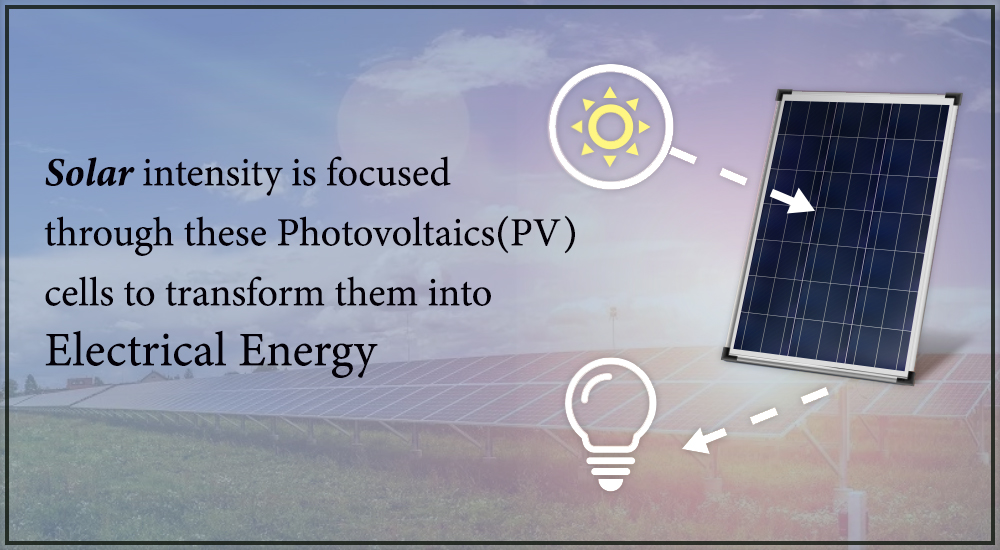What is Solar Energy?
The ability to perform work is energy, and ‘solar’ is an adjective derived from the Latin’ Solaris’, which describes the sun. As a result, one can simply define solar energy as a kind of energy originated or derived from the sun. You might have some idea about solar energy, but today we will deal with it in a pragmatic sense that how we are harnessing solar energy now. We may put this radiation to use in various ways, from heating water and living areas in our houses to generating electricity. Solar energy is a sort of radiant energy that gets its name from the vibrating particles that ‘radiate’ from the sun.

Solar energy is among the widely utilized renewable sources of energy and is described as transforming energy present in the sun. Visible rays and infrared waves make up the vast bulk of light penetrating the Planet’s surface. Photovoltaic panels or solar panels are used to transform this radiation energy into a consumable electric form.
How Solar Energy Works?
The sunlight that reaches the Planet’s surface in an hour and a half is quite sufficient to bolster the earth’s power requirements for over a year. Solar tech uses photovoltaic panels (PV) or reflectors. Solar intensity is focused through these PV cells to transform them into electrical energy. The same DC energy is used in various activities.



Advantages of Solar Energy
Being a marvelous non-pollutant source for energy generation. Several advantages beg solar energy over conventional means of energy. Solar radiation has the following benefits above all other forms of non-renewable supplies:
- Clean: It is considered the cleanest form of power generation since it generates no pollutants, in contrast to fossil fuels.
- Renewable: It is the most significant renewable energy source due to its omnipotence in everyday life.
- Reliable: Because the energy or the power can be well placed into large batteries for future consumption, hence the reliability factor can be ruled out.
- Reduction in Utility cost: There is a return on investment unlike paying electricity costs.
- No maintenance: Solar panels require almost little maintenance because they survive for more than 30 years.
- Creating Employment: Creates jobs by hiring solar panel producers, installers, and so on, which boosts the economy.
- Ability to live off-grid or no need for grids if all power generated is sufficient for the home/building.
- Easy installation: Can be put in almost any place, from a field to a skyscraper.
- Can be stored: Use batteries to store excess energy for use at nighttime.
- Multipurpose usage: Solar energy may heat water, powerhouses and buildings, and even power automobiles.
- Safer and efficient: safer than standard electric current
Read also this
Who Invented Electricity?
Read more ‘Electrical Energy’ posts
Read more ‘Renewable Energy Sources’
Disadvantages of Solar Energy
Despite so many benefits, there are some drawbacks too to solar energy. As it is a contemporary invention, there are a lot of scopes to improve upon. The following are the drawbacks of solar power infrastructure and its functioning.
Huge One-time investment: High material and setup expenses with a prolonged ROI or return on investment (however, with the reduction in the manufacturing cost of solar panels and pieces of equipment over the last decade, solar energy is getting more cost feasible)
- Scope of improvement: As efficiency is not yet at 100%, it necessitates a large amount of room.
- Large batteries: Because there is no solar power at night, a big battery bank is required.
- Unattractive: Some people believe they are unattractive, bulky, and spoil the aesthetic look of the place though it is not the popular opinion.
- Solar gadgets: Gadgets that operate only on direct current are more costly.
- Space consumption: The size of solar cells varies depending on geographical location for the same electricity output.
- Low Efficiency during winters: Solar energy production in winters and on Cloudy days is meager as compared to sunny days.
The large-scale design and installation of Solar systems allow us to shift away from other polluting and inefficient energy sources. Because the solar business is expanding, so, too, is the demand for sustainable development worldwide.
Leave a Reply